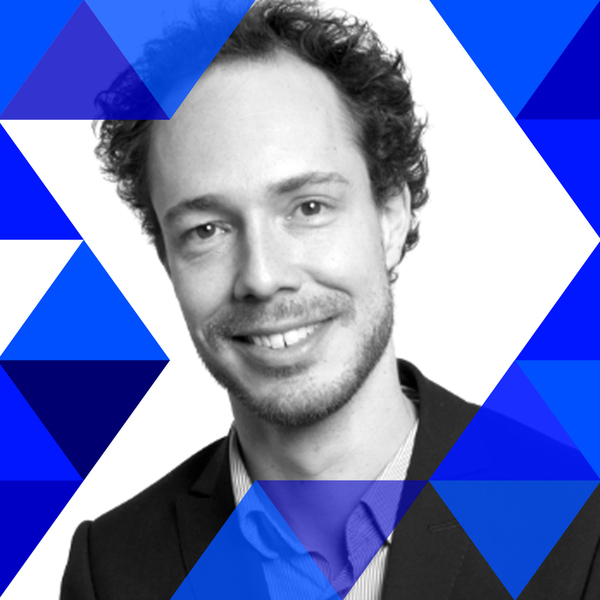Difference between revisions of "The Civic Economy"
(In many cities, we are increasingly witnessing the emergence of new forms of ownership: the consumer society is turning into a civic economy.) |
Rümeysa Önal (talk | contribs) |
||
| (43 intermediate revisions by 6 users not shown) | |||
| Line 1: | Line 1: | ||
| − | In | + | {{Article |
| + | |Image=Foto-web_1280x1280px-01.jpg | ||
| + | |Caption=Joost Beunderman | ||
| + | |Summary=In 2011 I published the book 'compendium for the civic economy' in which I explain how the 'civic economy' represents another approach to entrepreneurship rooted in value creation, resilience and social entrepreneurship. I am interested in projects which make use of new organisational tactics, new ways of connecting and new approaches toward collaborative investments. I am convinced that the 'civic economy' is a real, vital and growing component of many local economies, actively contributing to community resilience, everyday innovation and shared prosperity. At the WdKA symposium 'Redesigning Business'(Rotterdam, November 20 2014) I described a range of international projects with their potentials and challenges. | ||
| + | |Article=Author: Joost Beunderman | ||
| − | + | {{#ev:vimeo|116853041}} | |
| − | + | [[File:Foto-web_1280x1280px-01.jpg|Joost Beunderman]] | |
| + | ''Joost Beunderman is one of the directors of the London-based design and strategy office [http://www.architecture00.net 00:/ [zero zero]]. In 2010 the office launched the Hub Westminster network. It is also the owner of the very first Hub, established in Islington (London) in 2004. Joost graduated as an urban geographer at Utrecht University, and completed an MSc degree in City Design & Social Science at the London School of Economics. From 2005 to 2008, he was a researcher at the British policy think tank Demos, and also worked with the Urhahn Urban Design agency in Amsterdam and London.'' | ||
| + | }} | ||
| + | {{Category selector | ||
| + | |Category=Bottom-up | ||
| + | }} | ||
| + | {{Category selector | ||
| + | |Category=Economy | ||
| + | }} | ||
| + | {{Category selector | ||
| + | |Category=Empowerment | ||
| + | }} | ||
| + | {{Category selector | ||
| + | |Category=Participation | ||
| + | }} | ||
| + | {{Category selector | ||
| + | |Category=Transformation | ||
| + | }} | ||
| + | {{Articles more}} | ||
| + | Author: Joost Beunderman | ||
| − | + | In 2011 I published the book 'compendium for the civic economy' in which I explain how the 'civic economy' represents another approach to entrepreneurship rooted in value creation, resilience and social entrepreneurship. I am interested in projects which make use of new organisational tactics, new ways of connecting and new approaches toward collaborative investments. I am convinced that the 'civic economy' is a real, vital and growing component of many local economies, actively contributing to community resilience, everyday innovation and shared prosperity. At the WdKA symposium 'Redesigning Business'(Rotterdam, November 20 2014) I described a range of international projects with their potentials and challenges. | |
| − | [[ | + | <iframe src="http://player.vimeo.com/video/116853041" width="500" height="281" frameborder="0" webkitallowfullscreen mozallowfullscreen allowfullscreen></iframe> |
| − | [[Category: | + | |
| − | [[Category: | + | [[File:Foto-web_1280x1280px-01.jpg|Joost Beunderman]] |
| + | |||
| + | ''Joost Beunderman is one of the directors of the London-based design and strategy office [http://www.architecture00.net 00:/ [zero zero]]. In 2010 the office launched the Hub Westminster network. It is also the owner of the very first Hub, established in Islington (London) in 2004. Joost graduated as an urban geographer at Utrecht University, and completed an MSc degree in City Design & Social Science at the London School of Economics. From 2005 to 2008, he was a researcher at the British policy think tank Demos, and also worked with the Urhahn Urban Design agency in Amsterdam and London.'' | ||
| + | |||
| + | |||
| + | [[Category:Discourse]] | ||
| + | |||
| + | [[Category:Bottom-up]] | ||
[[Category:Economics]] | [[Category:Economics]] | ||
[[Category:Participation]] | [[Category:Participation]] | ||
| + | [[Category:Strategies]] | ||
| + | [[Category:Transformation]] | ||
Latest revision as of 21:21, 30 October 2018
Contents
Author: Joost Beunderman
Links
CONTRIBUTE
Feel free to contribute to Beyond Social.
Author: Joost Beunderman
In 2011 I published the book 'compendium for the civic economy' in which I explain how the 'civic economy' represents another approach to entrepreneurship rooted in value creation, resilience and social entrepreneurship. I am interested in projects which make use of new organisational tactics, new ways of connecting and new approaches toward collaborative investments. I am convinced that the 'civic economy' is a real, vital and growing component of many local economies, actively contributing to community resilience, everyday innovation and shared prosperity. At the WdKA symposium 'Redesigning Business'(Rotterdam, November 20 2014) I described a range of international projects with their potentials and challenges.
<iframe src="http://player.vimeo.com/video/116853041" width="500" height="281" frameborder="0" webkitallowfullscreen mozallowfullscreen allowfullscreen></iframe>
Joost Beunderman is one of the directors of the London-based design and strategy office 00:/ [zero zero]. In 2010 the office launched the Hub Westminster network. It is also the owner of the very first Hub, established in Islington (London) in 2004. Joost graduated as an urban geographer at Utrecht University, and completed an MSc degree in City Design & Social Science at the London School of Economics. From 2005 to 2008, he was a researcher at the British policy think tank Demos, and also worked with the Urhahn Urban Design agency in Amsterdam and London.









